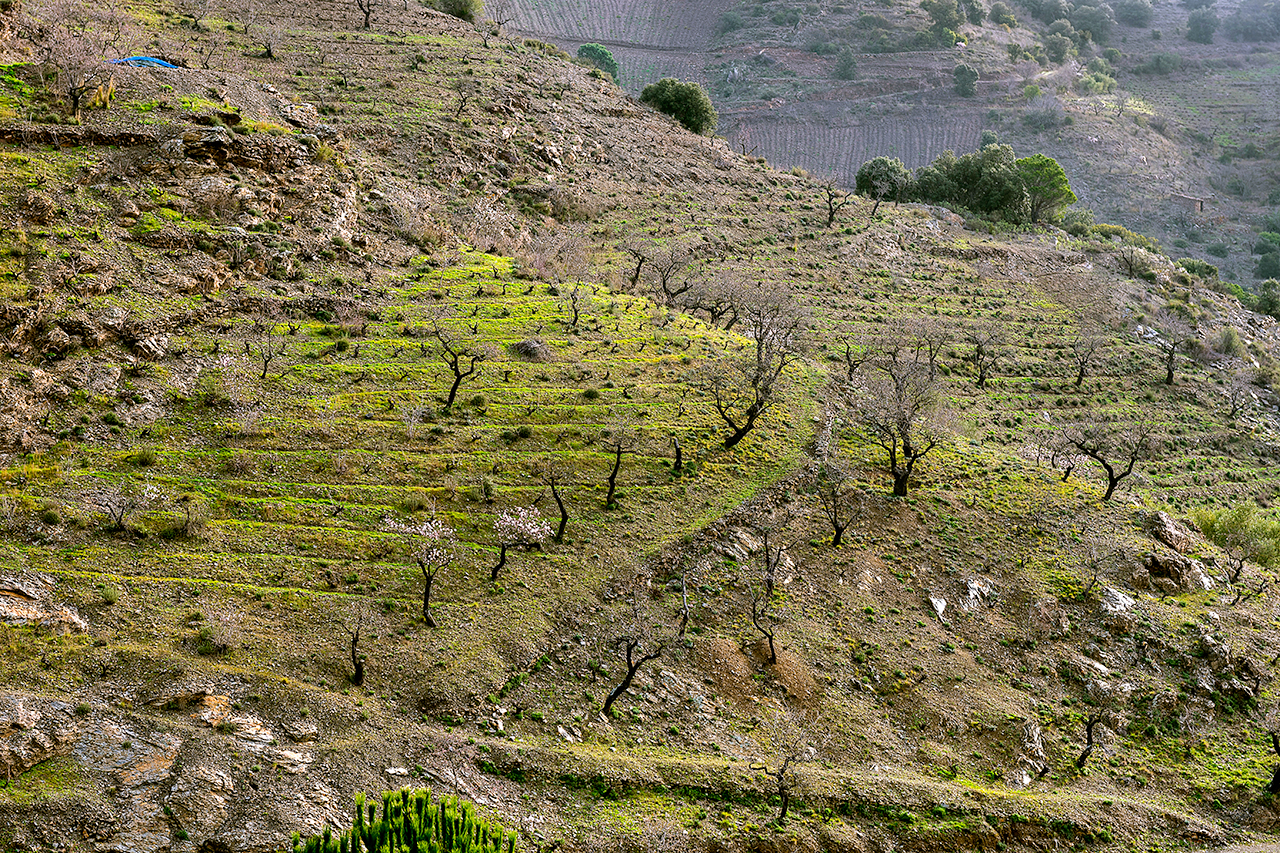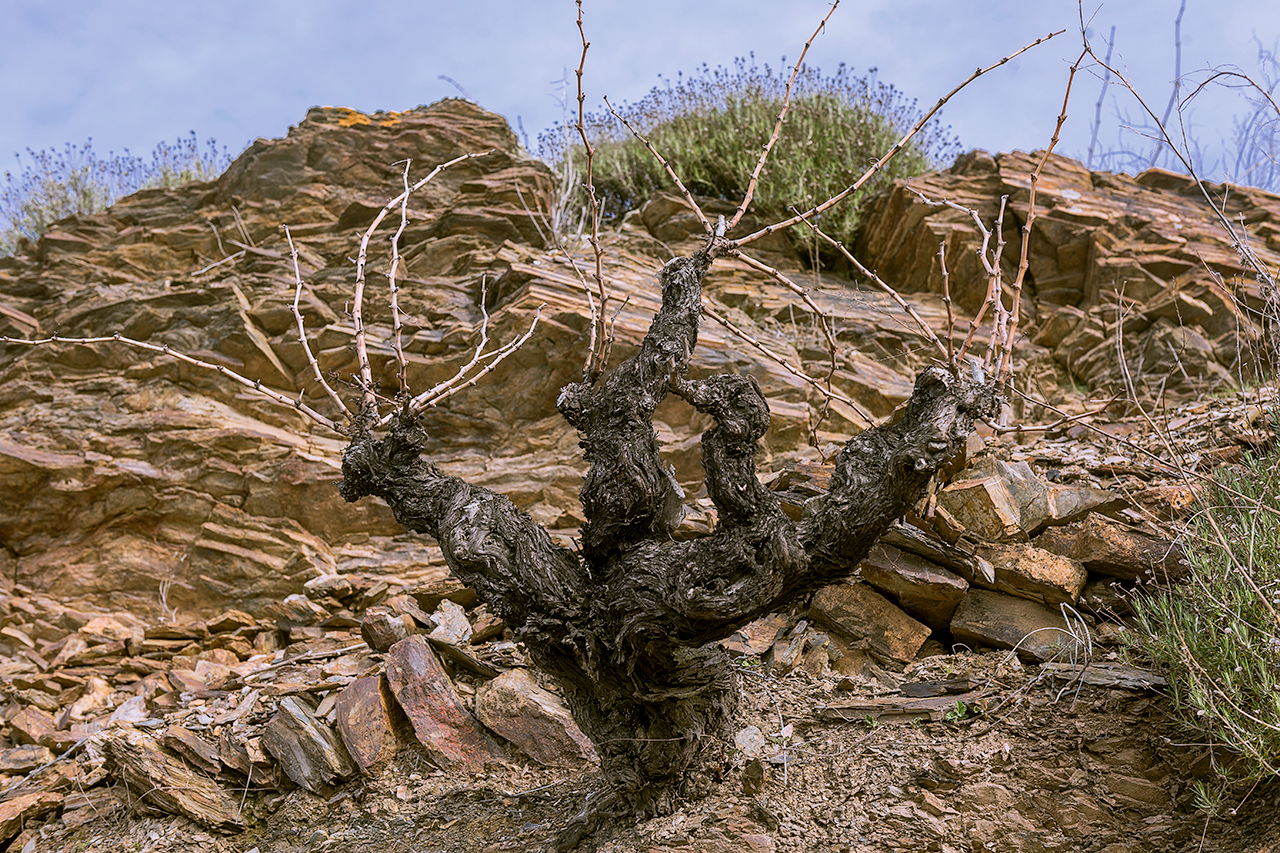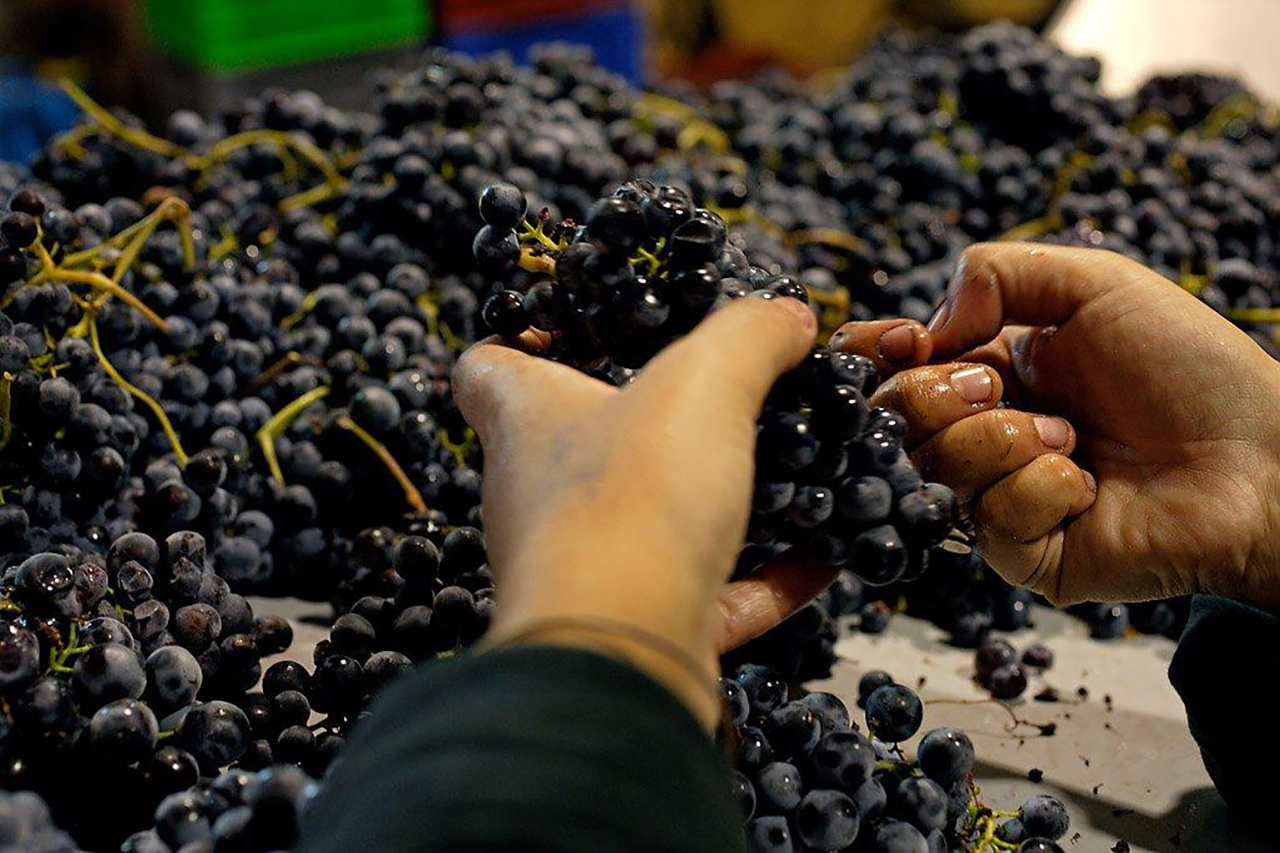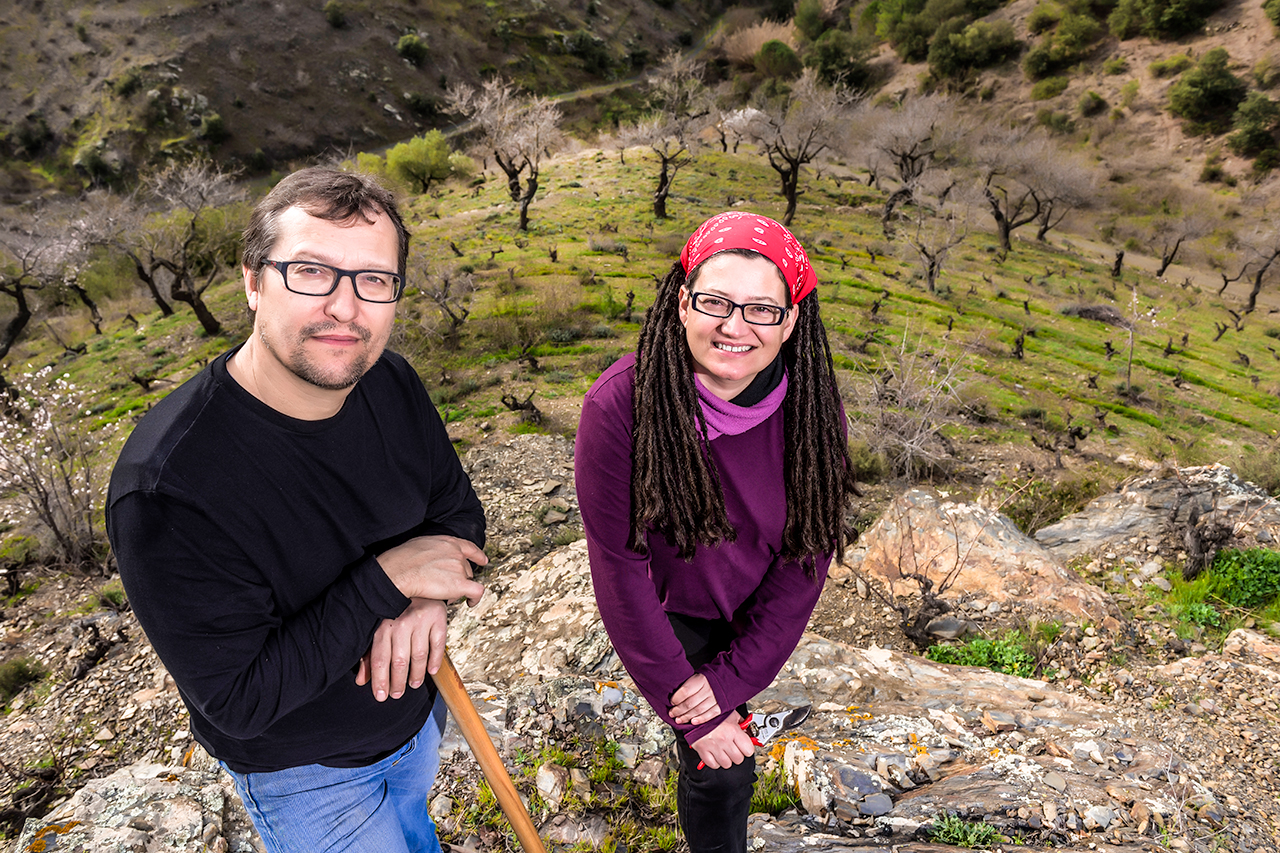

After obtaining a degree in Biology at the University of Barcelona, then a subsequent degree in Enology – with an […]
Keep ReadingAfter obtaining a degree in Biology at the University of Barcelona, then a subsequent degree in Enology – with an emphasis on biodynamic and organic viticulture – at the Public University of Tarragona, Ester Nin took a position at Mas Martinet in the village of Porrera in 2001. Raised in the Alt Penedès, she felt right at home in the Priorat, eventually became the viticulturist for Daphne Glorian at Clos i Terrasses, where she supervised the transition of the vineyards to biodynamic farming.
Falling in love with the rugged slopes, rocky soils, and ancient vines of the region, in 2004, Ester bought a 1.5ha parcel of old vine Garnatxa Negre, Peluda, and Carinyena in Mas d’En Caçador– the famed vineyard on the border between Porrera and Gratallops. At 650 meters above sea level, this site is one of the highest in the Priorat, and its north-facing slopes are buttressed by ancient stone terraces providing a footing for the vines on this rocky, treacherous, pure schist soil.
A few years earlier, Carles Ortiz, a native of Barcelona and a trained Enologist in his own right, had purchased nearly 5 hectares of vineyard land outside Porrera called Finca Les Planetes. Here he resurrected many of the old vines but replanted much of the site with a massale selection of Garnatxa and Carinyena. Both Carles and Ester were early proponents of biodynamics in the Priorat, both lived in Porrera, and both were young and available, so as these things are wont to happen… Familia Nin-Ortiz was born.
With two viticulturists devoted to biodynamics principles, the farming at Familia Nin-Ortiz employs only organic materials, including mineral sulfur in the vineyard, sprayed biodynamic infusions, and applications of their own compost. They are members of Nicolas Joly’s organization, “La Renaissance des Appellations,” and share their knowledge with neighbors interested in pursuing the transition to biodynamic farming. Weeding is done by hand, and the soils are plowed by mules to revitalize their soils. Harvesting, always by hand, commences early when pH levels are balanced by ripe fruit. When the fruit arrives at their cellar, newly completed in 2012, it is carefully sorted to remove any overripe fruit and partially destemmed, then chilled for 24-48 hours to prevent oxidation at the beginning of the winemaking process. Fermentations occur spontaneously and take place in foudre, demi-muids, or amphorae. Familia Nin-Ortiz’s goal is to produce elegant wines, so extraction is also natural, occurring without aggressive manipulation of the cap. Aging takes place primarily in neutral vessels so the purity of the site can be preserved.
When they first launched Familia Nin-Ortiz, there were just two wines – Nit de Nin from Mas d’En Caçador and Planetes from Finca Les Planetes. The range of wines has gradually expanded to include Planetes de Nin Blanc, a Carinyena Blanca from Finca Les Planetes, Selma, a white wine from Ester’s hometown of El Pla de Manlleu in the Alt-Penedès, a small-production Parellada Montonegra from a tiny vineyard also in the Penedès, an amphora-aged Garnatxa from Finca Les Planetes, and Nit de Nin Coma d’en Romeu from a newly purchased, south-facing site in Porrera with 70-year-old vines of Garnatxa planted on costers instead of terraces.
CloseThe village of Porrera, home to Ester Nin and Carles Ortiz
Planetes
Mas d'en Romeu
Terraces in Mas d'en Romeu
Old vine Garnatxa - Mas d'en Romeu
Schist "soil" in Mas d'en Romeu
Mas d'en Caçador
The steep terraces of Mas d'en Caçador
Old vine in Mas d'en Caçador
Ploughing Mas d'en Caçador, spring 2017.
Removing any over- or under-ripe berries before whole cluster fermentation
The cellar of Familia Nin-Ortiz
The cellar of Familia Nin-Ortiz












